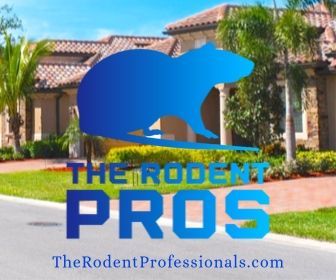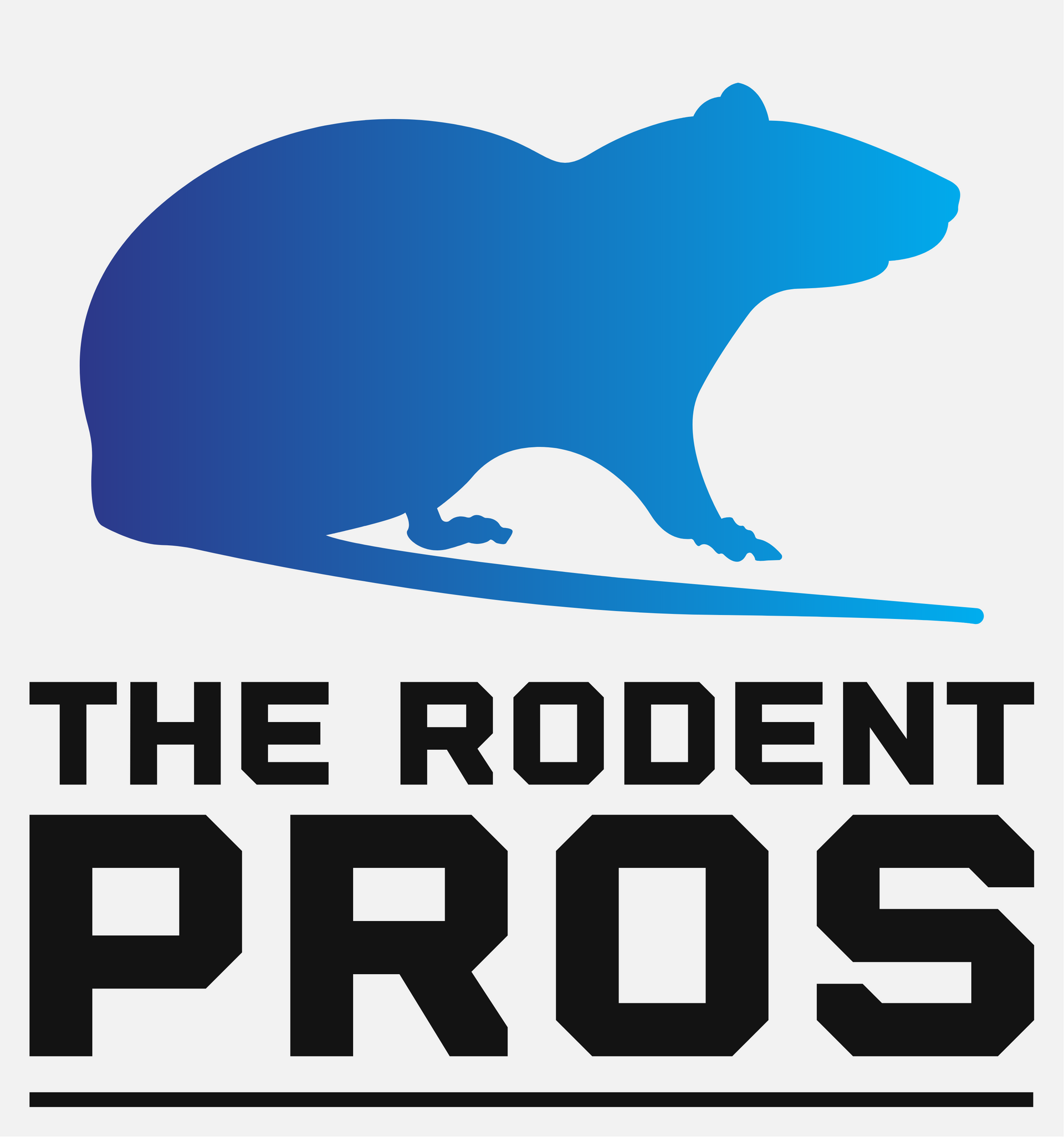
Rodent Control in Clearwater Florida
The Rodent Pros Offer rodent trapping, rodent removal, rodent exclusion, rodent sanitation and rodent remediation services to Clearwater and all cities within a 50 miles radius of Tampa Florida.
To Call and schedule a free inspection click here
Clearwater, Florida, known for its picturesque beaches and vibrant tourist attractions, faces an ongoing challenge with rodent infestations. This issue impacts public health, the local economy, and the quality of life for residents. This comprehensive analysis delves into the historical context, contributing factors, health implications, economic impacts, and strategies for managing rodent populations in Clearwater.
Rodent infestations are not a new issue for urban areas like Clearwater. Historically, periods of rapid urbanization and environmental changes have led to increased rodent activities. Clearwater's growth, particularly in residential and commercial sectors, has often displaced natural rodent habitats, pushing these pests closer to human settlements. In the past, efforts to control these populations have seen varying degrees of success, often influenced by economic resources and public awareness.
Several key factors contribute to Clearwater's rodent problem
Urbanization As Clearwater continues to expand, construction activities disrupt natural habitats, causing rodents to seek new shelter and food sources in urban areas. Older infrastructure with numerous entry points also provides ample nesting sites for rodents.
Climate Florida's warm and humid climate is ideal for rodents to breed throughout the year. Unlike colder regions, where rodent populations may decrease during winter, Clearwater experiences constant rodent activity.
Food Sources Improperly stored garbage, pet food left outdoors, and bird feeders provide a continuous supply of food for rodents. Restaurants and grocery stores can also be hotspots for rodent activity if waste management practices are not stringent.
Shelter Urban areas offer numerous hiding spots and nesting sites. Buildings, sewers, and landscaped areas can all serve as habitats for rodents. The structural integrity of older buildings often provides easy access points.
Human Behavior Human activities, such as leaving food waste in accessible places and inadequate sanitation practices, significantly contribute to the rodent problem. Public awareness and behavior are crucial in controlling rodent populations.
Rodents pose several health risks to humans and pets
Diseases Rodents are known carriers of various diseases, including leptospirosis, hantavirus, salmonellosis, and rat-bite fever. These diseases can be transmitted through direct contact with rodents or their droppings, urine, and saliva.
Allergies and Asthma Rodent droppings, urine, and hair can trigger allergic reactions and asthma attacks, particularly in children and sensitive individuals. Contaminated air can exacerbate respiratory issues.
Bites and Scratches While rare, rodent bites can lead to infections and other health complications. Rodents can also contaminate food and surfaces, increasing the risk of foodborne illnesses.
Secondary Pests Rodent infestations often attract other pests, such as fleas, ticks, and mites, which can further spread diseases and cause discomfort.
The economic impact of rodent infestations in Clearwater is significant
Property Damage Rodents gnaw on electrical wiring, insulation, and structural components of buildings. This can lead to fire hazards, costly repairs, and decreased property values. Historical buildings, in particular, are at risk due to their older construction materials.
Food Industry Rodent contamination can lead to financial losses for restaurants, grocery stores, and food processing facilities. Contaminated food products must be discarded, and businesses may face legal liabilities and reputational damage.
Tourism Clearwater's economy heavily relies on tourism. Visible rodent problems can deter visitors, negatively impacting local businesses and the hospitality industry. Maintaining a clean and safe environment is crucial for attracting tourists.
Public Services Increased rodent activity places a burden on public services, including pest control, waste management, and public health departments. Resources must be allocated to address the infestation, which can strain municipal budgets.
Effective rodent control in Clearwater requires a multifaceted approach
Prevention Proper sanitation and waste management are fundamental. This includes securing garbage bins, eliminating food sources, and maintaining cleanliness in public and private spaces. Regular cleaning schedules and proper disposal methods can prevent rodent attraction.
Exclusion Sealing entry points in buildings to prevent rodents from gaining access is essential. This involves repairing holes, installing door sweeps, and maintaining buildings. Weatherproofing and structural repairs should be prioritized.
Population Control The use of traps and rodenticides can help reduce existing populations. However, these measures must be used responsibly to avoid unintended harm to other wildlife and pets. Integrated pest management (IPM) techniques should be employed, combining mechanical, chemical, and biological controls.
Community Involvement Public education campaigns to raise awareness about rodent prevention and control can help engage the community in proactive measures. Community participation in cleanup efforts and reporting sightings can enhance control efforts.
Regular Monitoring Continuous monitoring and surveillance are necessary to identify problem areas and assess the effectiveness of control measures. Data collection and analysis can inform targeted interventions.
- Downtown Clearwater: A coordinated effort involving local businesses, the municipality, and pest control professionals led to a significant reduction in rodent sightings through improved waste management and building maintenance. Regular inspections and community engagement played crucial roles in this success.
- Residential Areas: Neighborhood watch programs focused on rodent prevention have been successful in suburban areas. Community members work together to identify and address potential rodent habitats, report sightings, and implement preventive measures.
- Tourist Attractions: High-profile areas like Clearwater Beach have implemented stringent pest control measures, including daily cleaning routines, secure waste disposal, and public awareness campaigns. These efforts help maintain a rodent-free environment for visitors.
- Public Transportation: Bus stops and transit hubs often attract rodents due to discarded food and litter. Collaboration between transportation authorities and pest control services has led to targeted cleaning and exclusion measures, reducing rodent activity in these areas.
Challenges and Future Directions
While progress has been made, several challenges remain:
- Climate Change: Increasing temperatures and changing weather patterns can influence rodent behavior and breeding cycles, potentially exacerbating the problem. Warmer winters and wetter seasons may lead to higher rodent populations.
- Urban Development: Continued growth and development will require ongoing efforts to manage rodent populations effectively. Construction projects should incorporate pest prevention measures from the planning stages.
- Resistance: Over time, rodents can develop resistance to certain rodenticides, necessitating the development of new control methods. Research into alternative pest control strategies, including biological controls, is essential.
- Resource Allocation: Ensuring sufficient funding and resources for rodent control programs is crucial. Municipal budgets must prioritize public health and pest management to sustain long-term efforts.
Future directions in rodent management may include:
- Research and Innovation: Advances in technology, such as smart traps, electronic monitoring systems, and genetic research, can improve the effectiveness of rodent control. Innovation in non-toxic pest control methods and environmentally friendly solutions should be explored.
- Sustainable Practices: Emphasizing environmentally friendly methods of rodent control to minimize ecological impact. This includes reducing reliance on chemical rodenticides and promoting natural predators.
- Policy and Regulation: Strengthening regulations related to waste management, building codes, and pest control practices to ensure comprehensive and consistent approaches across the city. Policies should support proactive and preventive measures.
- Community Engagement: Ongoing public education and community involvement are vital for sustainable rodent control. Engaging schools, businesses, and residents in pest prevention initiatives can foster a collective responsibility.
Conclusion
The rodent problem in Clearwater, Florida, is a complex issue that requires ongoing attention and collaborative efforts. By understanding the contributing factors, health and economic impacts, and effective management strategies, the community can work towards sustainable solutions to mitigate this pervasive problem. Continued research, public education, and proactive measures are essential to keeping rodent populations under control and ensuring a healthy, safe environment for all residents and visitors. Through coordinated efforts and innovative approaches, Clearwater can effectively address its rodent challenges and maintain its reputation as a desirable place to live and visit.

